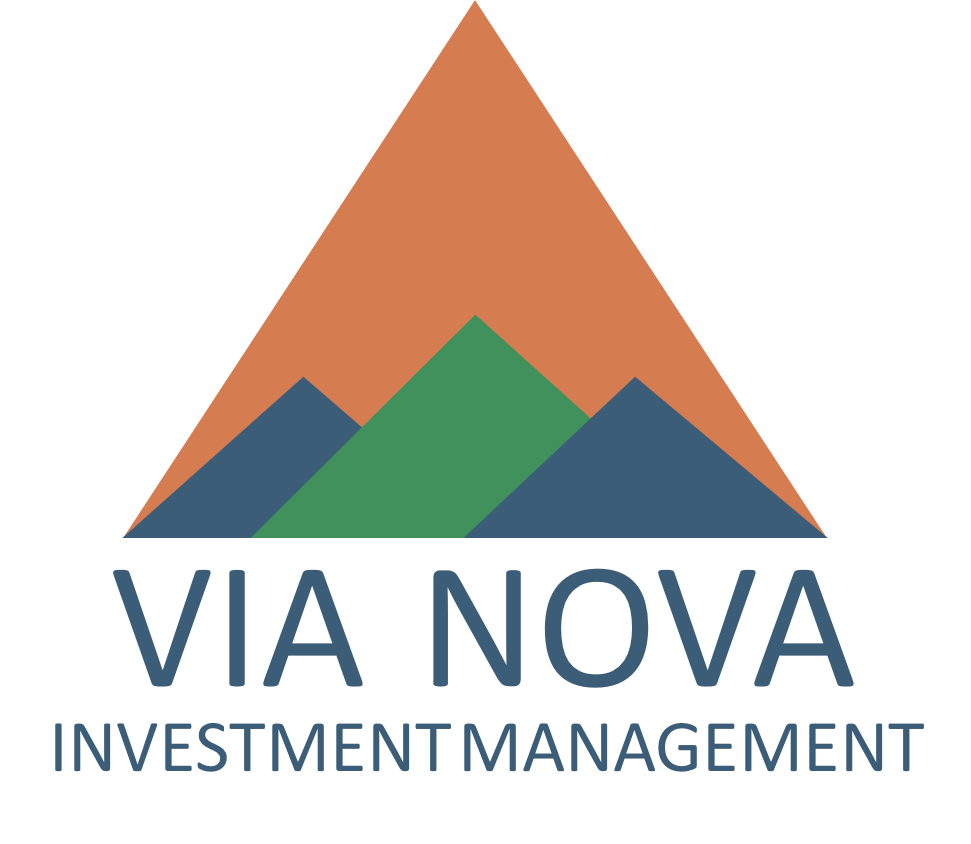VIA NOVA IN THE NEWS
Financial media outlets frequently turn to Alan Gayle, president of Via Nova, for market insights.
(For press inquiries, email alan.gayle@vianovaim.com)
Gayle: “For the time being, my money stays home.”
It was great to being on Money Life again talking with Chuck Jaffe. Listen to my segment to hear my take on the economy, the markets, and asset allocation.
"The coronavirus outbreak remains our top near-term concern for global growth and the markets. The immediate impact appears to be concentrated in Asia, but all governments are taking the threats very seriously and are taking steps to contain the spread of the virus," said Alan Gayle, president at Via Nova Investment Management.
"Our most likely scenario is that the virus will continue to weigh on the markets for the next several months, but that it will not induce a global recession."
“While we acknowledge the increased risks represented by the coronavirus and rising Middle East tensions, the global economic landscape is notably more positive entering 2020,” said Alan Gayle, president at Via Nova Investment Management.
“Moreover, earnings prospects are improving and central bankers intend to keep interest rates low, which supports a higher stock market. We plan to maintain our increased equity exposure at least over the near term.”
"While many uncertainties remain regarding the outlook, we believe much, if not most, of the potential risk has been priced into the market, and we have begun gradually putting cash back to work in equities," said Alan Gayle, president at Via Nova Investment Management.
"The U.S. reliance on global trade is lower than that of our trading partners, and that lower relative exposure has been a benefit to domestic markets.
"The preponderance of negative bond yields outside the U.S. along with the relatively stronger economy here at home makes us prefer domestic bonds.
"Monetary authorities are doing all they can to support economic growth, and this is appreciated by the equity markets. That said, the risks of a fiscal policy misstep are mounting, and that could overwhelm actions by central banks.
"Our asset allocation strategy will be driven most by developments in the U.S.-China trade war, but a Brexit deal or the emergence of German fiscal stimulus would also affect our investment allocation."
“There are early signs that global economic momentum may be stabilizing, but the combination of slow growth and elevated geopolitical and trade risks still argue for a measure of caution,” said Alan Gayle, president at Via Nova Investment Management in Washington, D.C. “While most of the challenges facing the global economy are self-inflicted - trade, Brexit, etc. - the odds of a miscalculation by elected officials is rising.”
“Some near-term caution toward stocks is warranted given the strong gains in the first half combined with a slowing global economy, renewed trade tensions and stalled corporate profits growth,” said Alan Gayle, president of Via Nova Investment Management. “Moreover the lack of market participation outside of the large-cap S&P 500 highlights the challenge.”
“We believed the U.S. and China would resolve their differences over trade in a reasonable amount of time. But that confidence has been shaken. Policymakers are running with scissors and that may lead to self-inflicted wounds,” said Alan Gayle, president at Via Nova Investment Management.
“The rebound in the stock market in the first quarter suggests investors became overly pessimistic,” said Alan Gayle, President of Via Nova Investment Management in Washington.
“Markets began 2019 pricing in gloom and doom after major indexes fell ... in 2018. If the major risks facing the market, rising interest rates and a full-blown trade war, are avoided, equities can rally to new record highs,” said Alan Gayle, president at Via Nova Investment Management, in Washington DC.
"Now that the Fed is unlikely to raise interest rates over the near term, the biggest risk to the economy and the markets is trade tensions with China," said Alan Gayle, president of Via Nova Investment Management.
“The more attractive yields in the U.S., combined with the recent dovish shift in Fed commentary, suggest that the U.S. bond market will continue to outperform,” said Alan Gayle, president of Via Nova Investment Management.
"The combination of aggressive Federal Reserve rate hikes, an escalating and potentially prolonged trade dispute with China and the upcoming mid-term elections has generated a great deal of anxiety for the markets," said Alan Gayle, president of Via Nova Investment Management. "Fear and uncertainty are currently dominating market psychology."
“If trade tensions ease, we would expect international and emerging-market stocks to rebound. But betting on emerging-market stocks is to pick a date when trade issues are resolved, and we don’t know that date. Until then, we believe a higher relative U.S. weighting is appropriate,” said Alan Gayle, President of Via Nova Investment Management.
"The biggest risk to the U.S. and global markets is related to mounting trade tensions. While we believe these will be resolved, the process could take longer than many investors want," said Alan Gayle, president at Via Nova Investment Management.
"We are in a battle between facts and fears," said Alan Gayle, president at Via Nova Investment Management. "The facts are a strengthening economy with increased employment, earnings and spending which is helping to fuel impressive sales and earnings growth for companies. The two main fears are how fast the Federal Reserve will raise interest rates and how far trade tensions will escalate. These risks have grown in recent months."
“Strengthening economic growth and a confident Fed is helping to support the dollar,” said Alan Gayle, president of Via Nova Investment Management LLC in Fredericksburg, Virginia. “Higher short-term interest rates make the dollar more attractive relative to other currencies.”
“We believe the facts of a healthy economy and strong earnings growth justify a bias in favor of equities and away from bonds. However, less accommodative central bank policies and the potential for a trade war are tangible threats to an otherwise positive outlook,” said Alan Gayle, president at Via Nova Investment Management. “Caution, not fear, is warranted,” he said.
Alan Gayle shares his outlook for the economy, stocks and interest rates.
Bond investors are likely to be facing steady headwinds,” said Alan Gayle, president at Via Nova Investment Management. “That suggests a favourable and supportive backdrop for earnings and stock prices, and we favour stocks over bonds.”
“I don't think that the 3 percent level necessarily makes bonds a buy,” said Alan Gayle, president of Via Nova Investment Management in Fredericksburg, Virginia. “I don't think investors should be abandoning stocks when the economy is growing and earnings are up roughly 20 percent from a year ago.”.
"The economic reports...combined with the newly enacted tax reform legislation, suggest future upside surprises to both economic growth and corporate profits. The path of stock prices, while higher on balance, may be rockier this year," noted Alan Gayle, president at Via Nova Investment Management.
"We remain positive on our outlook for the economy and the stock market for the remainder of 2018 and see market dips as buying opportunities. However, we are less sanguine on the outlook for bonds."
"2018 is shaping up as a year when we’ll see tension between economic strength and the policy reaction to that...
By March, we should start to see some traction from tax reform,” says Alan Gayle, president at Via Nova Investment Management, a registered investment advisor. While working Americans already have seen some benefit in their take-home pay — which could translate to more spending — publicly traded companies still are “digesting the nuances” of tax reform, he adds.

























